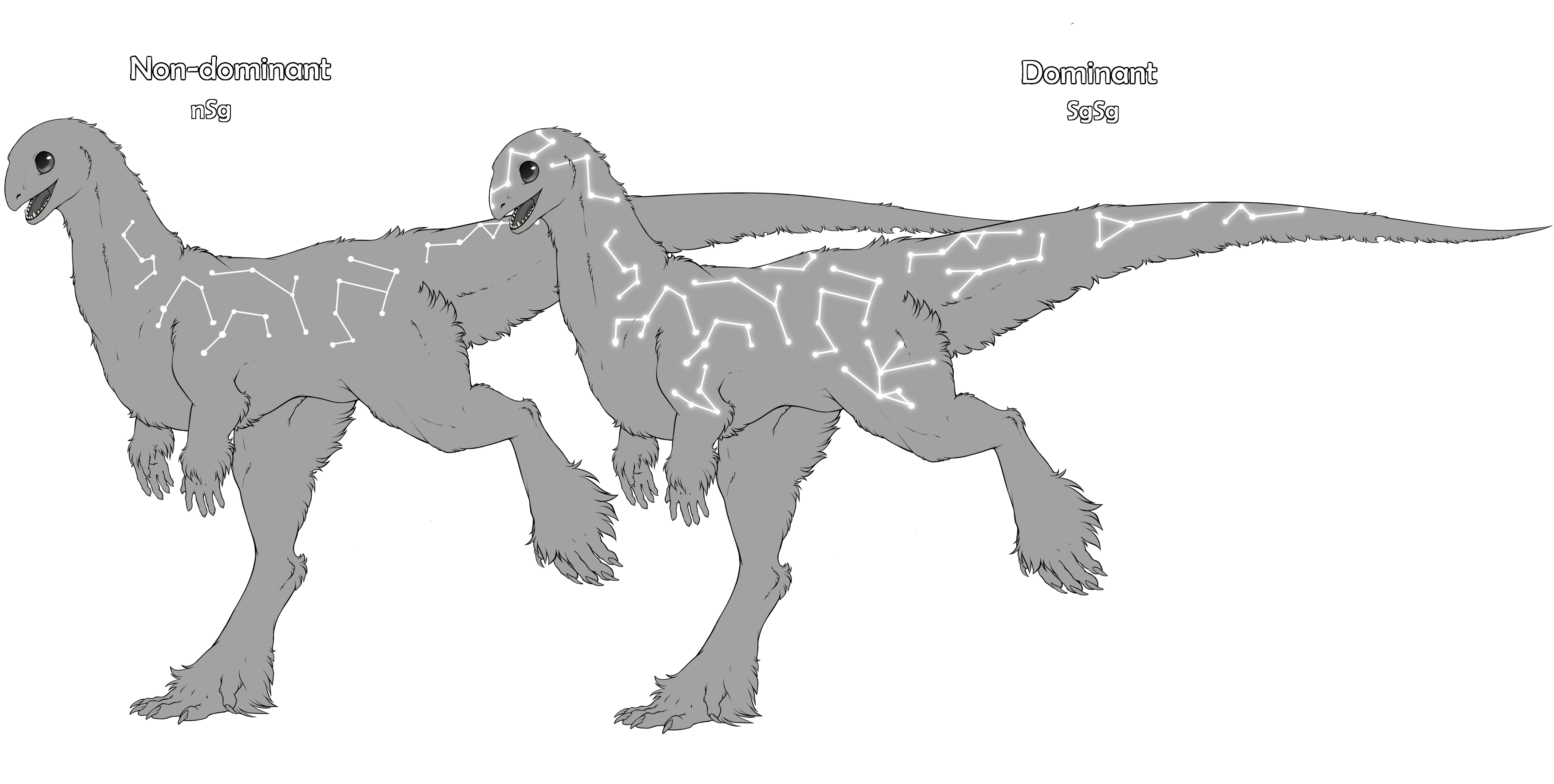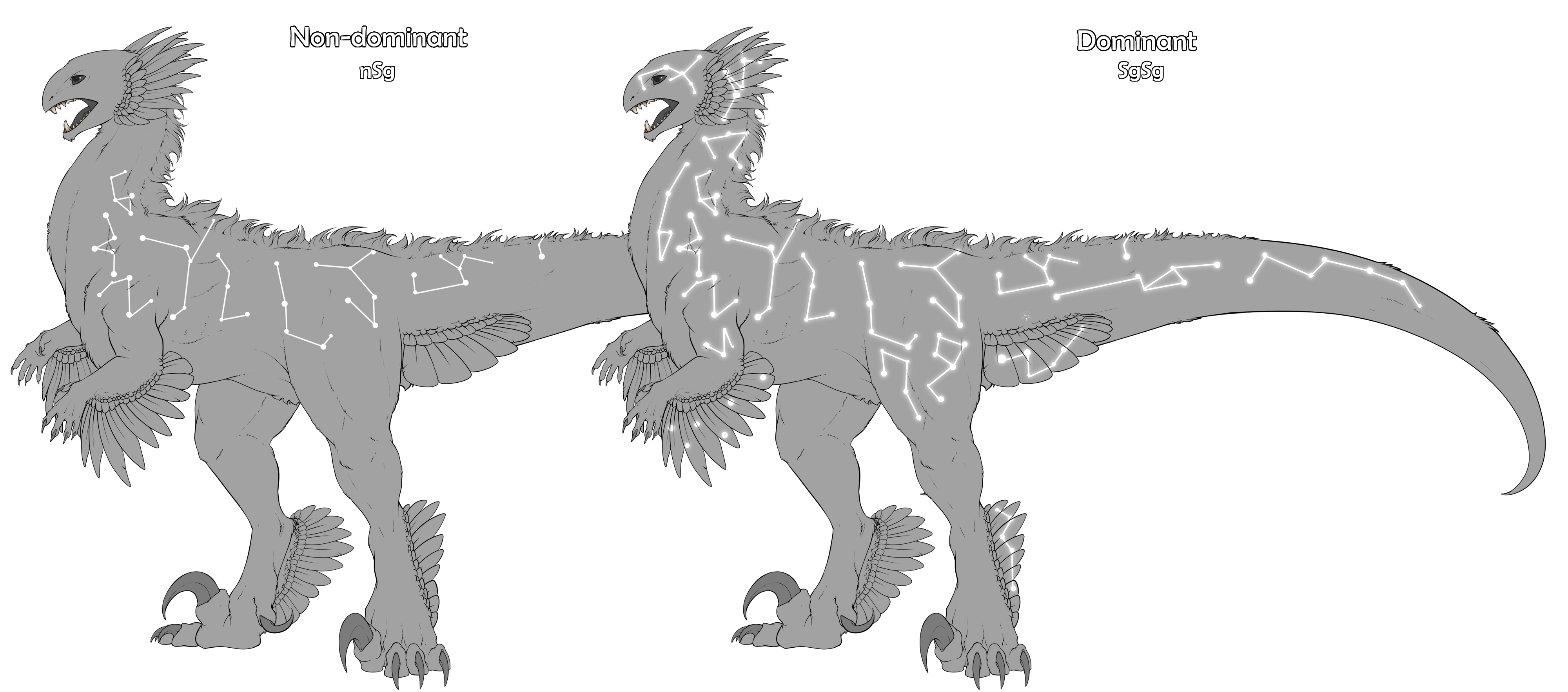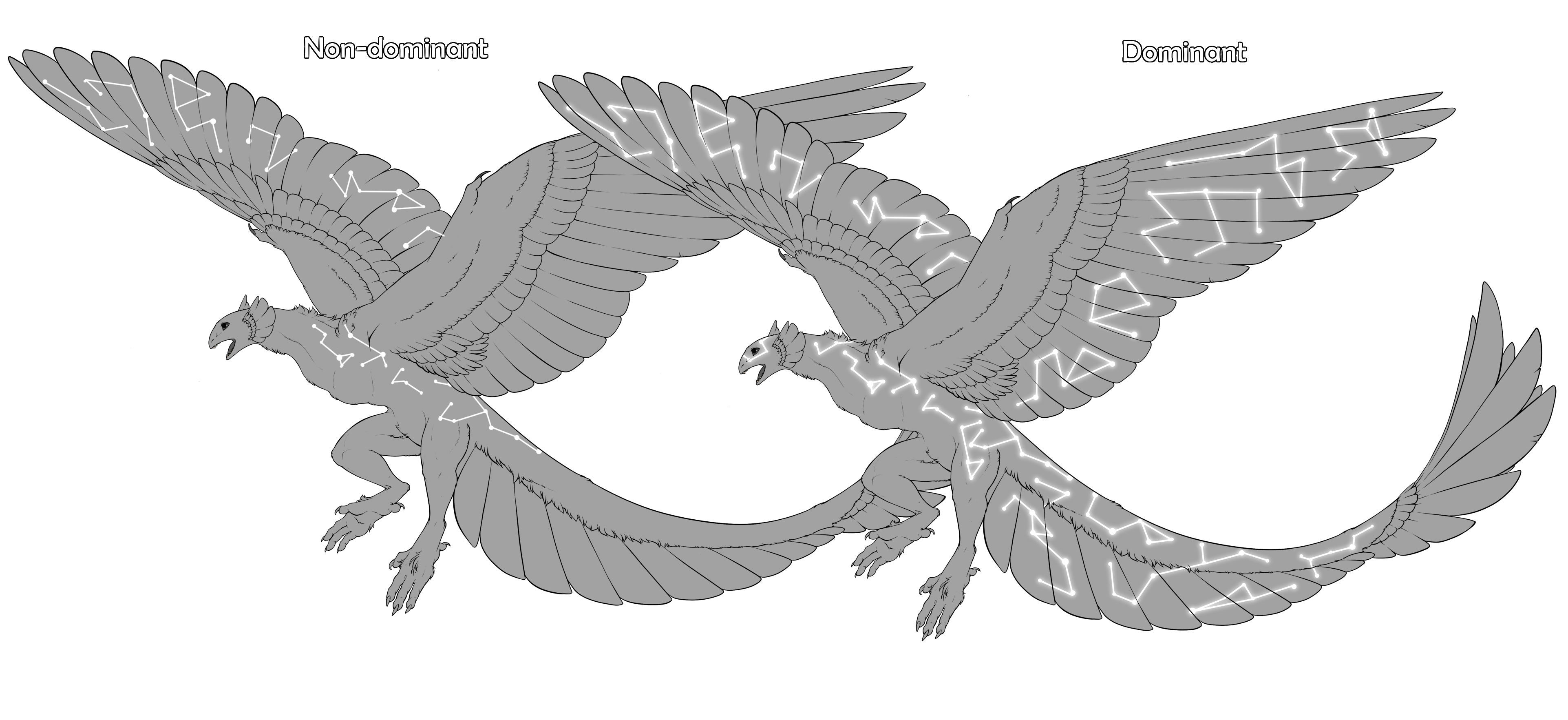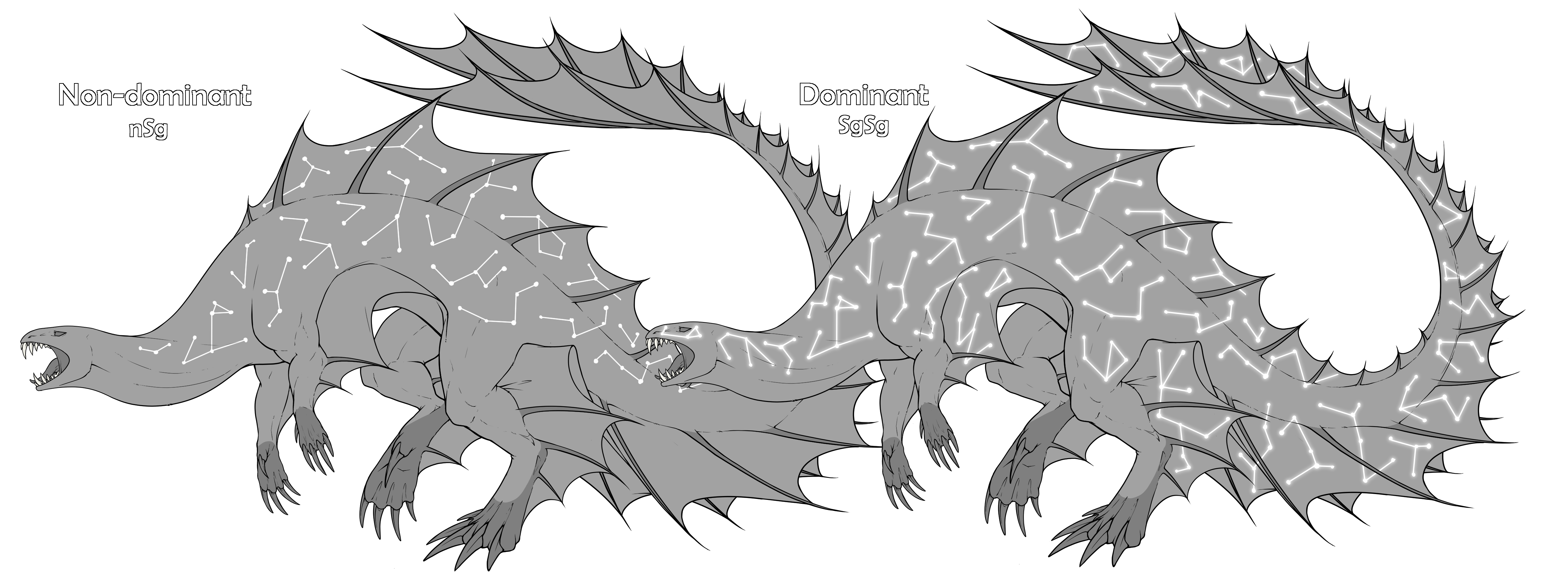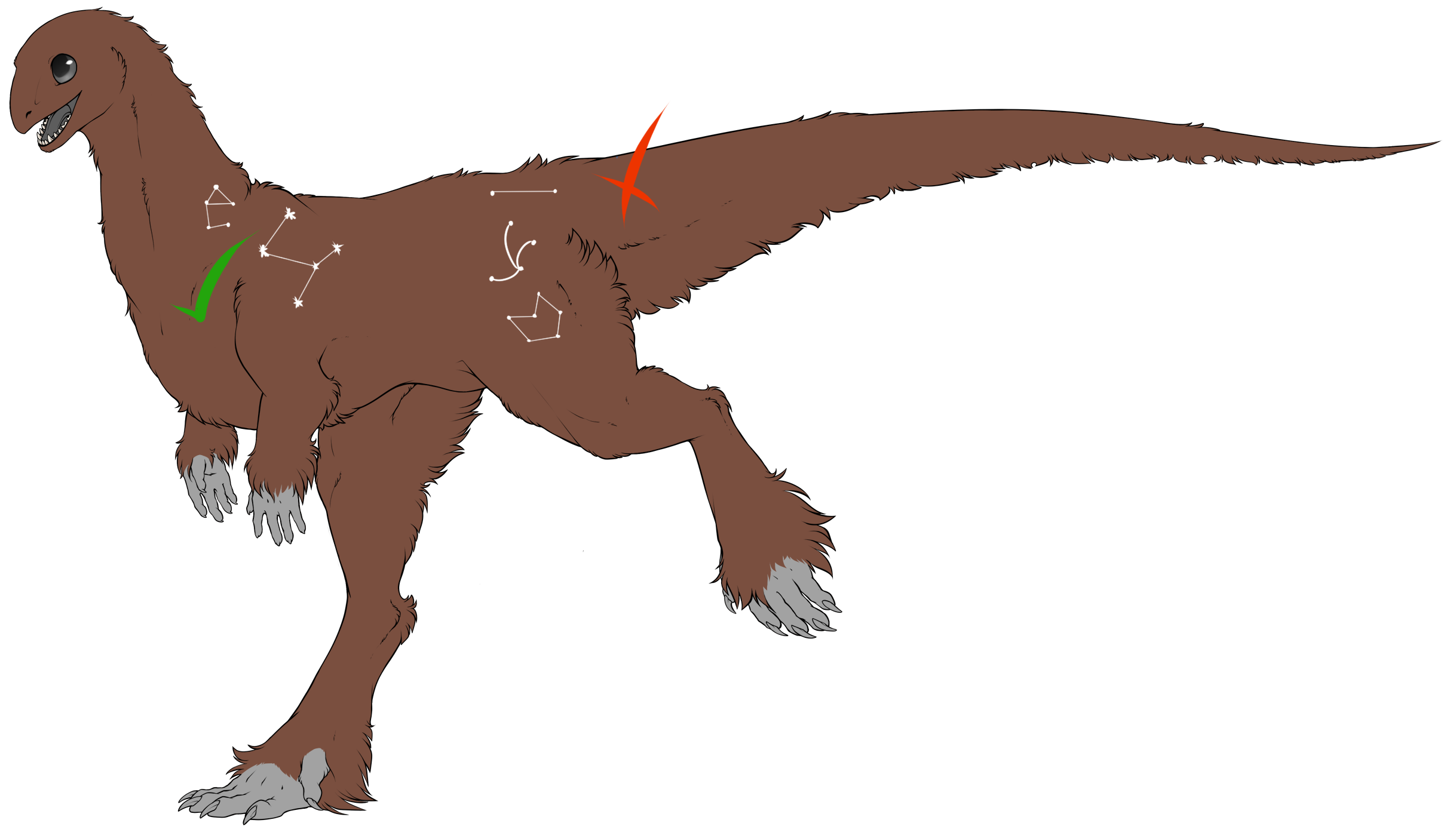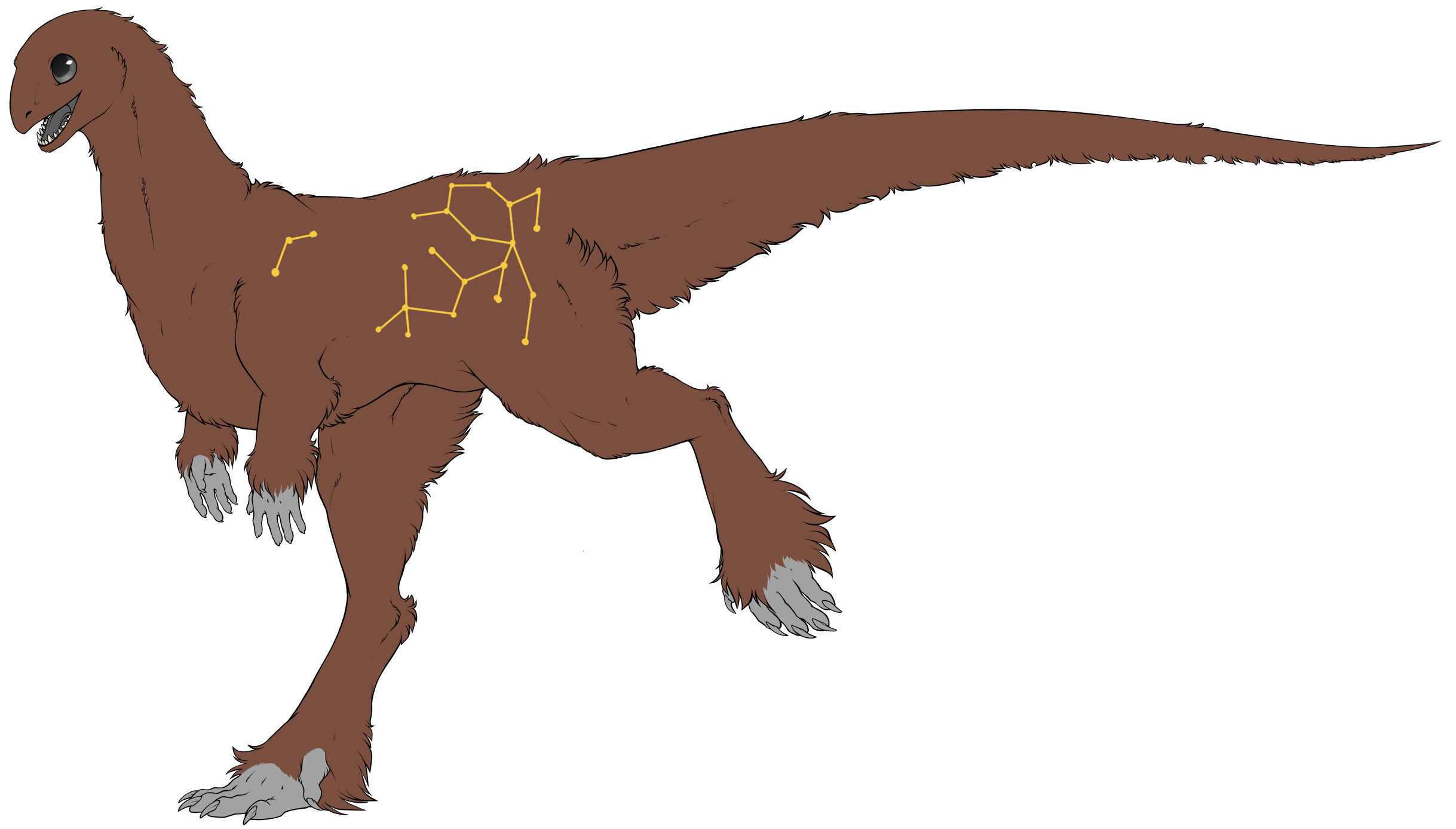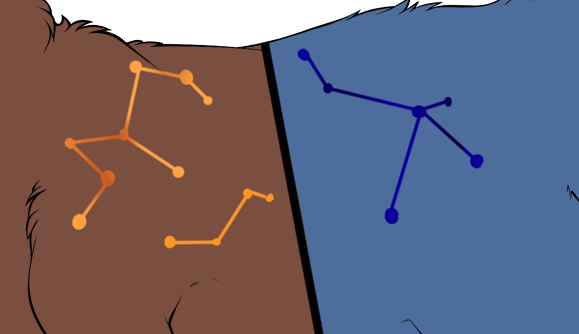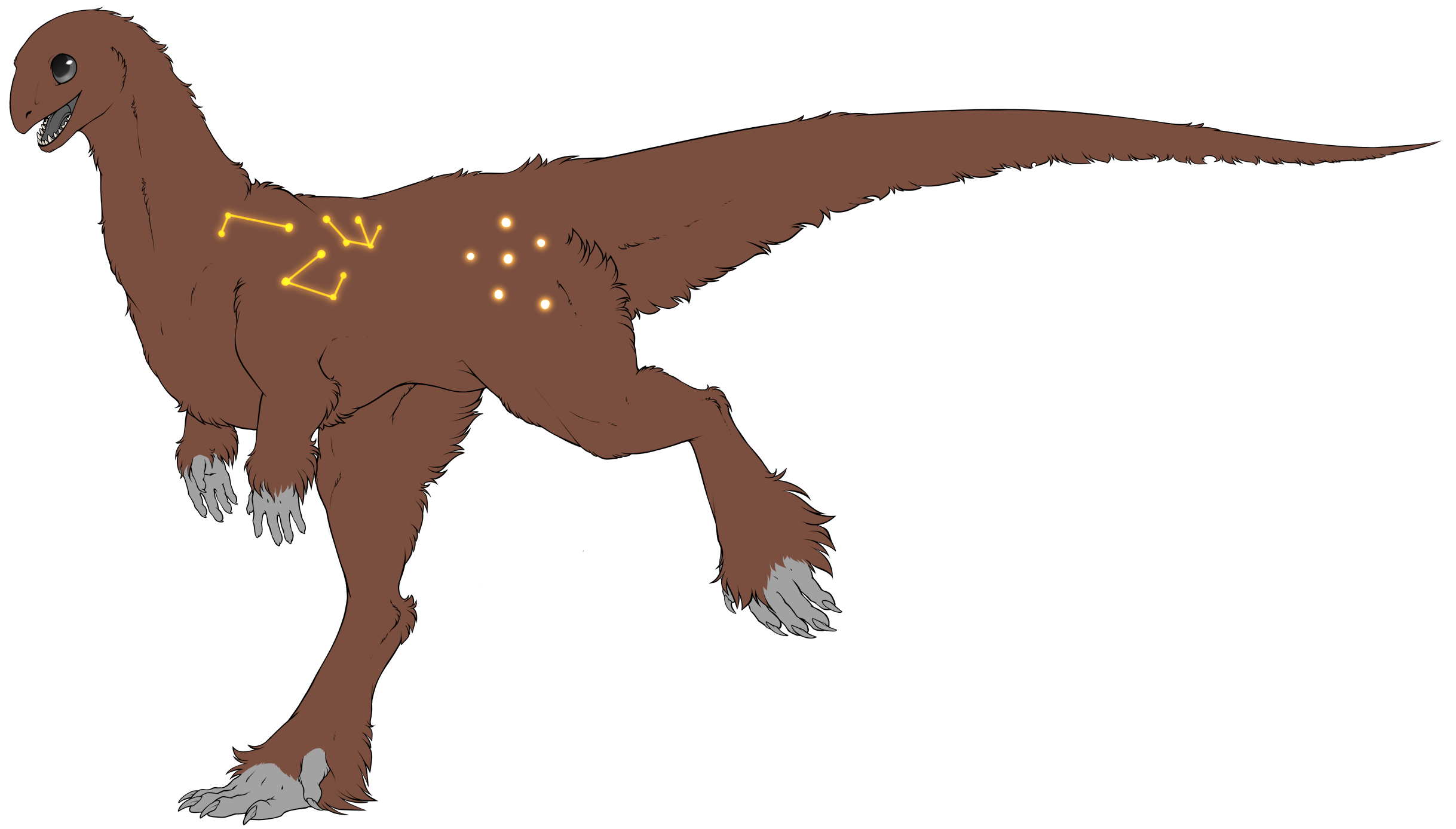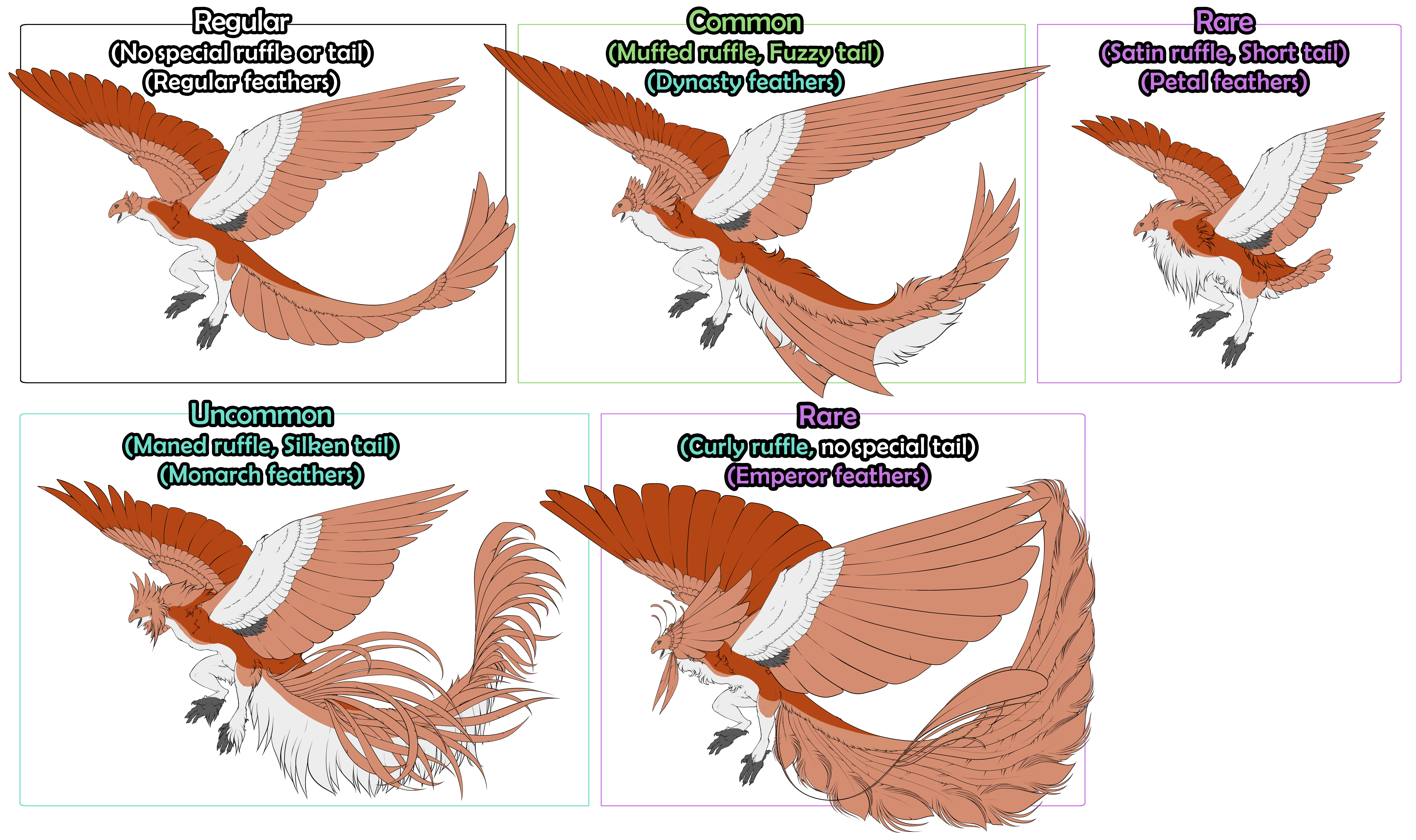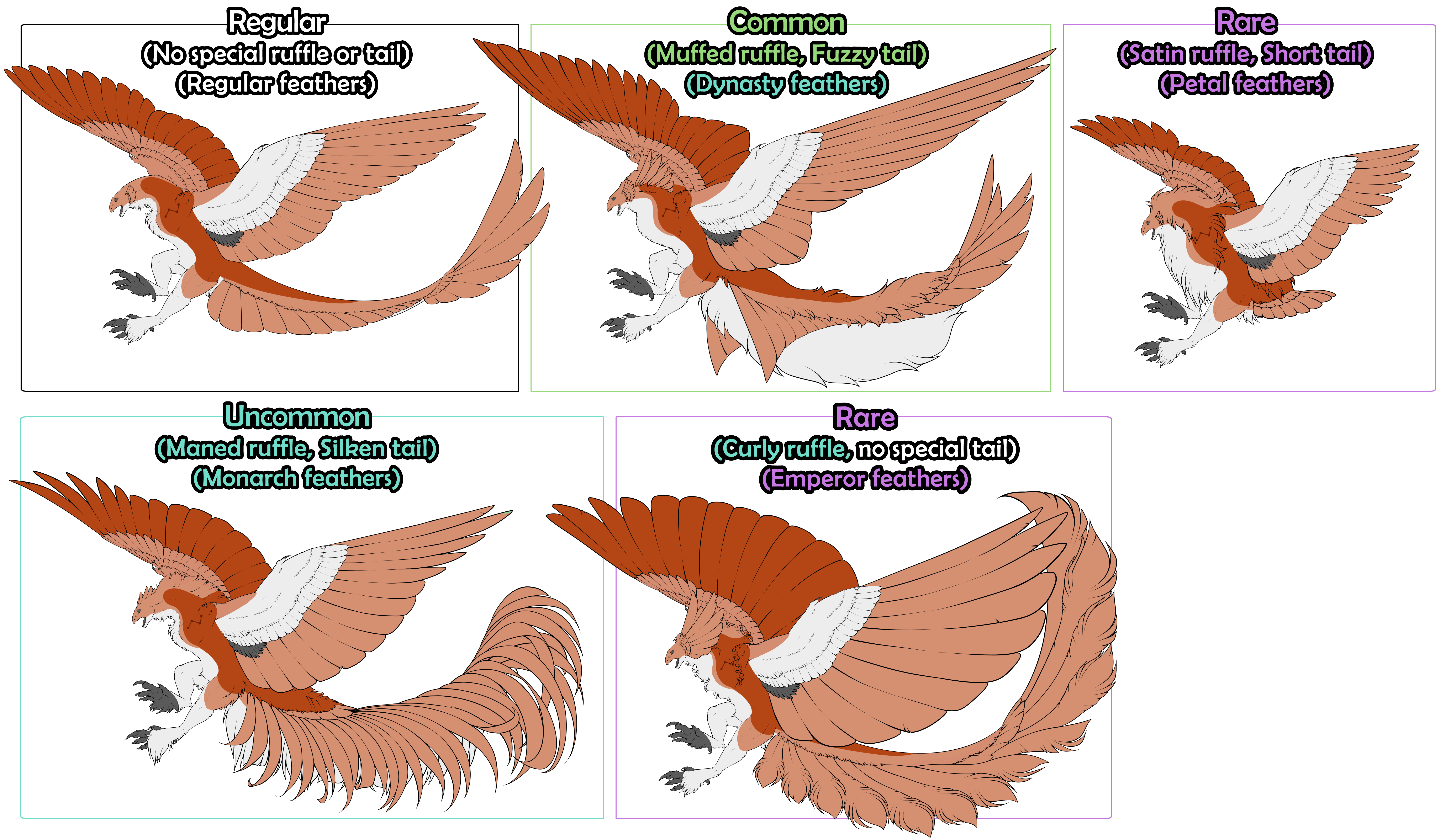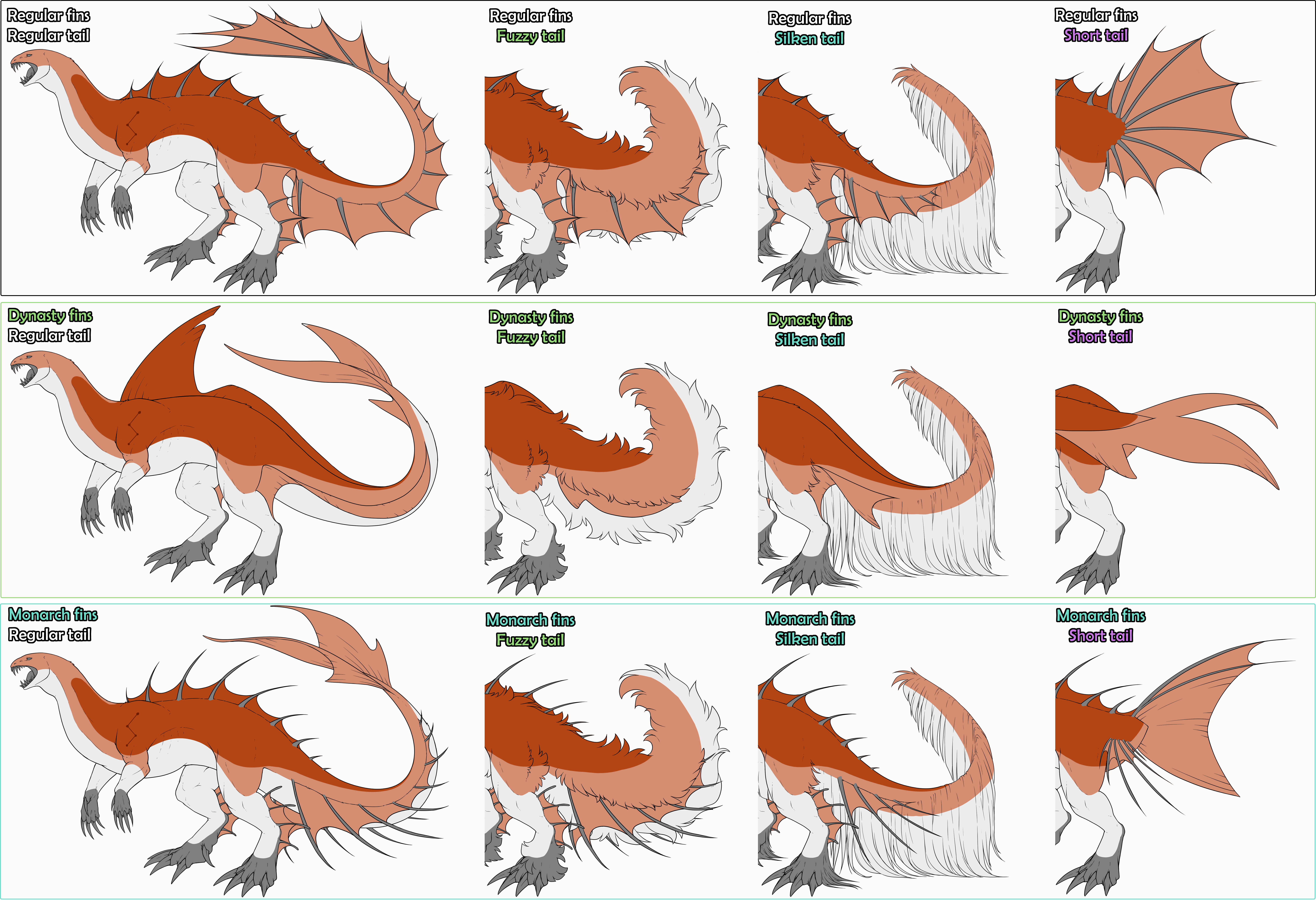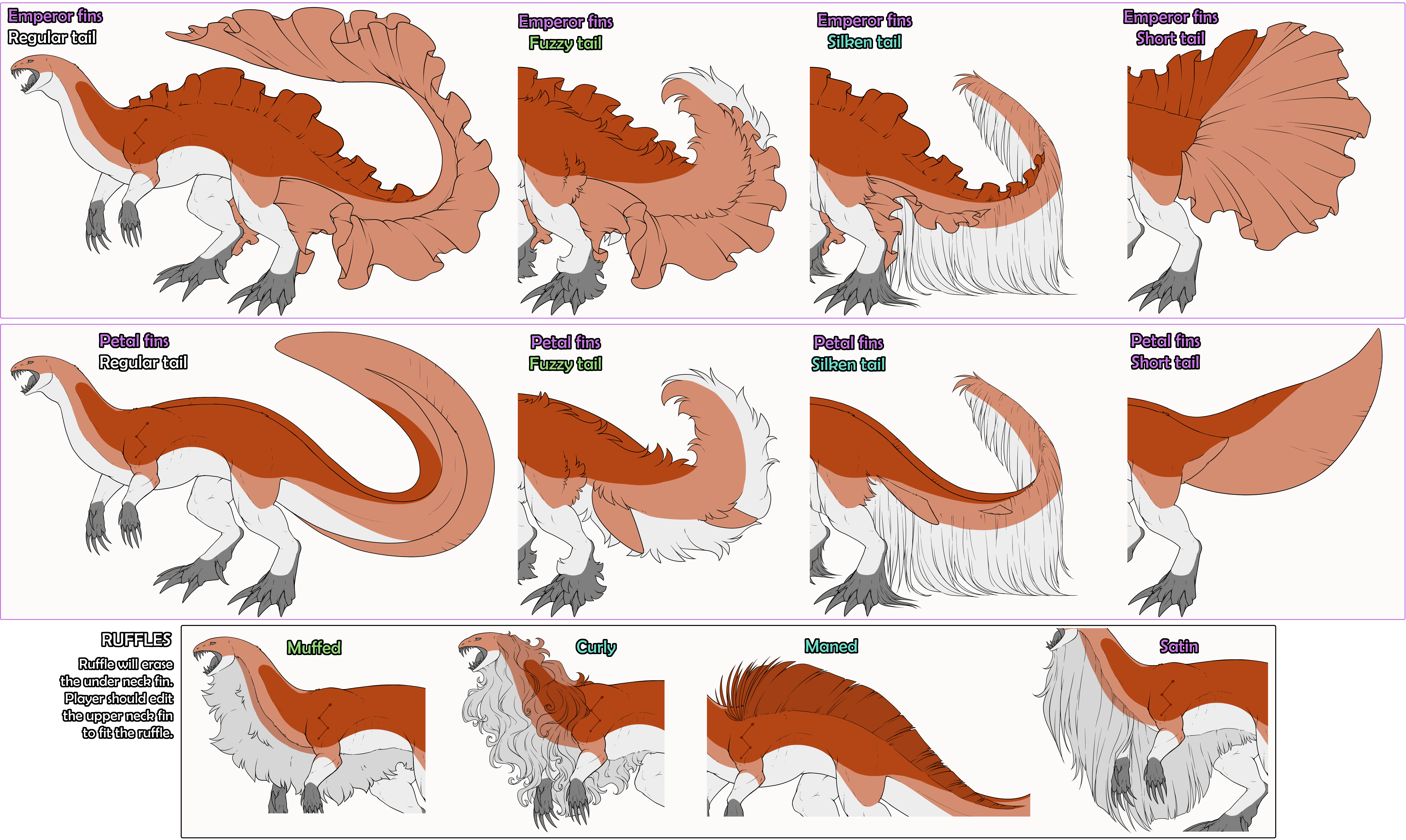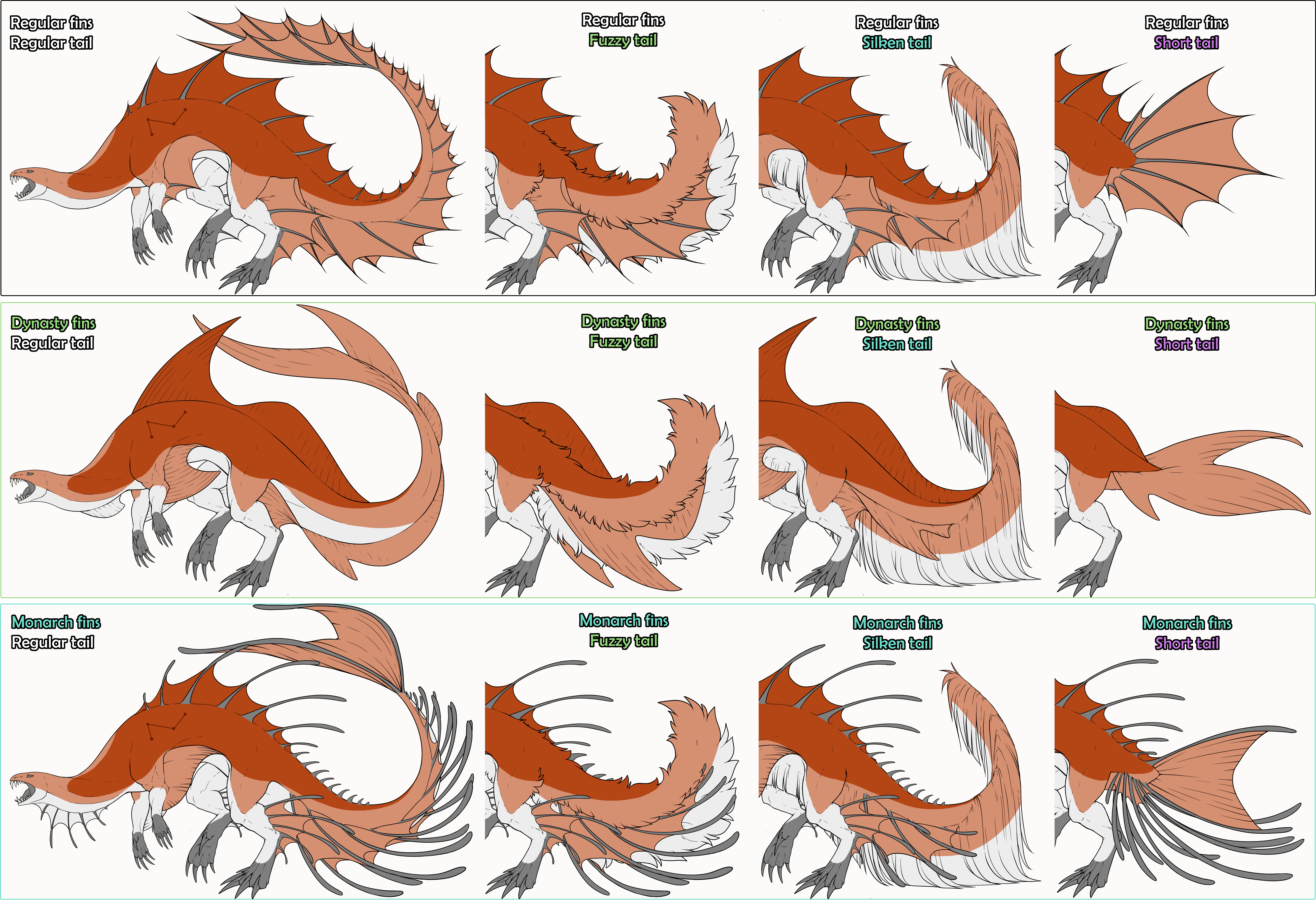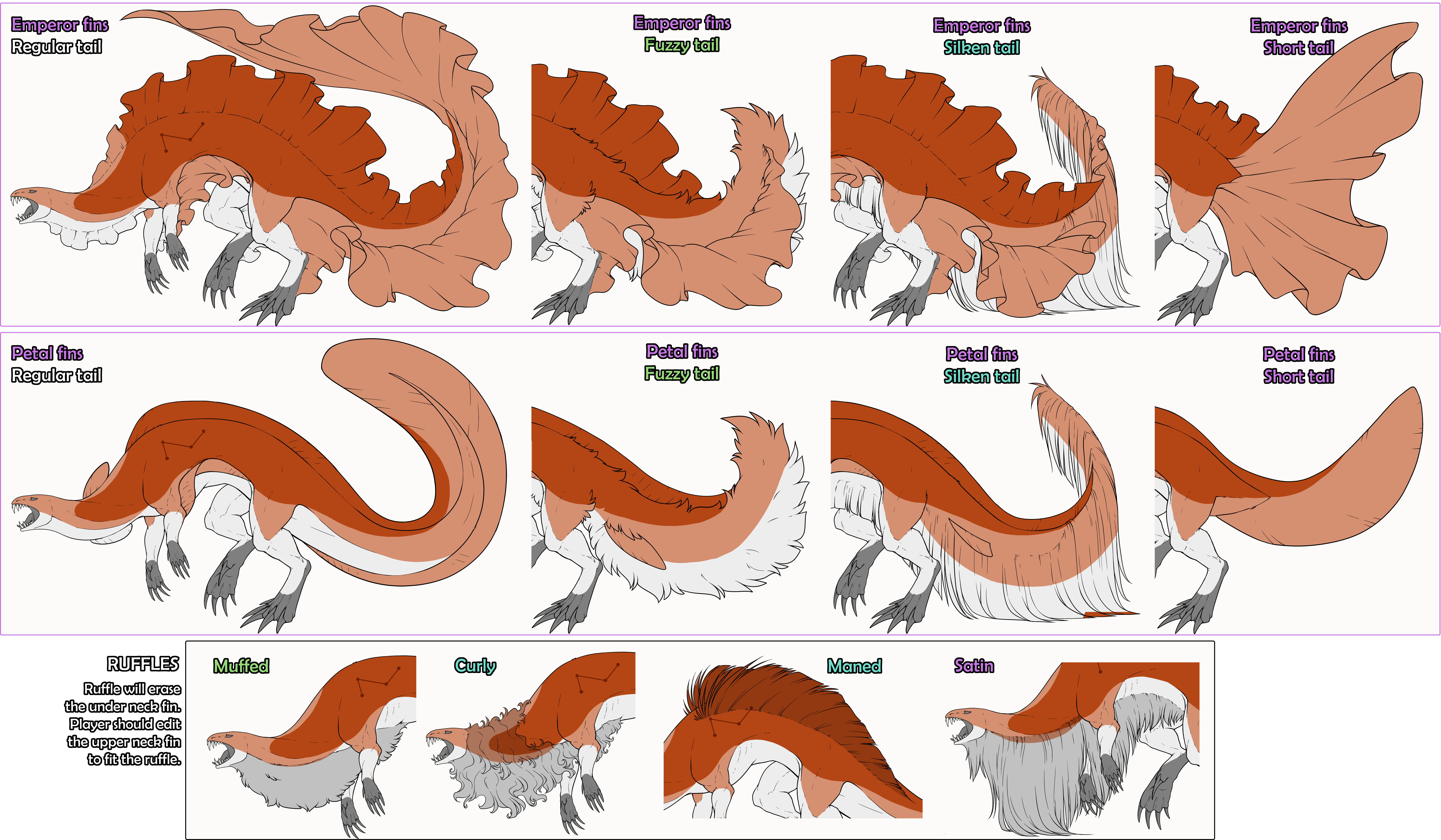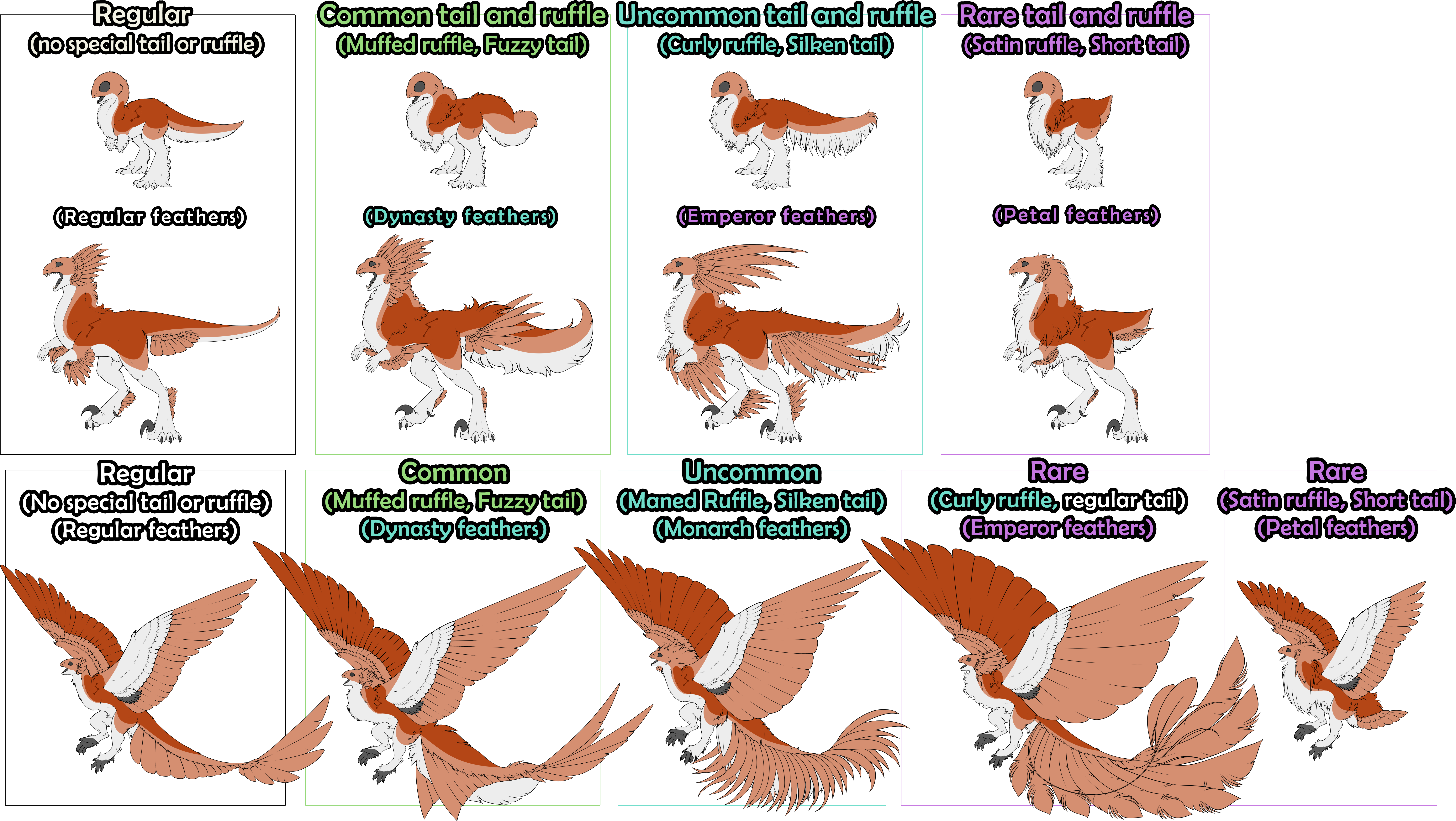Edge allowances
 Hard
HardSymmetry allowances

 Can be symmetrical or asymmetrical
Can be symmetrical or asymmetricalColor Allowances:

 Can be lighter or darker
Can be lighter or darker
A Guide to Stargaze
Shaping
Stargaze can use both dots and X-like stars as the connection spots, but must must have straight connecting lines,
curving lines are not permitted.
Like other marks, it can not make heart shapes without Heart being present in the genotype!
Stargaze must have a minimum of 3 "stars", one or two star constellations will result in corrections!
These stars can be spread across the body however you choose, even stretching the whole length of the allowed range!
Min and Max
The minimum number of stars per constellation is 3 and the maximum is 20. To the right, you can see the min and max!When dominant, constellations can have an unlimited number of stars, you may even create one big constellation across the whole back!
Colors
Like Magma and Glaze, Stargaze can use saturated colors permitted by their usual marking color rules. This means
you can have a Amber kukuri with bright red constellations with slight color variation within it, but could not
use blue color, and likewise rare coats may use the blues and greens their marking allowances permit. In dominant
form you may use any color!
Stargaze is NOT affected by Haze.
Dominant Glow
When Stargaze is dominant, it can show a faint glow. This glow can not be as strong as Luminescent.
Where Luminescent must have a near white inner color, Stargaze glow should be the same color as the marking
itself. To the right is a visual of Stargaze vs Luminescent.
Stargaze Ranges
The minimum area of a kukuri's body Stargaze should cover
The maximum area of a kukuri's body recessive Stargaze can cover
The maximum area of a kukuri's body dominant Stargaze can cover
The minimum area of a kukuri's body Stargaze should cover
The maximum area of a kukuri's body recessive Stargaze can cover
The maximum area of a kukuri's body dominant Stargaze can cover
The minimum area of a kukuri's body Stargaze should cover
The maximum area of a kukuri's body recessive Stargaze can cover
The maximum area of a kukuri's body dominant Stargaze can cover
The minimum area of a kukuri's body Stargaze should cover
The maximum area of a kukuri's body recessive Stargaze can cover
The maximum area of a kukuri's body dominant Stargaze can cover
